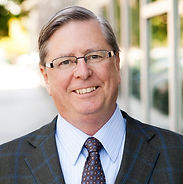top of page

OUR STORY
The History of Fast ForWord
Thirty years ago, four research scientists applied their individual areas of expertise to the revolutionary product we now call Fast ForWord. Our founders were able to combine new research in neuroplasticity with a unique scientific viewpoint - that children suffering from language-learning difficulties actually had difficulty distinguishing between speech sounds (auditory processing problems).
The first study showed unprecedented results. The second study, using acoustically modified speech sounds, produced stunning results. These results were published in the journal Science in the summer of 1995, and were presented at a conference in November, which sparked an article in the New York Times. The public response was overwhelming. It's estimated that 20,000 people tried calling Rutgers University to get more information on the trial. In fact, there were so many calls that it shut down the phone banks.
Now it's much easier to get access to Fast ForWord for your child to work on at home. The science has been around for 30 years, and Fast ForWord just celebrated its 20 year anniversary in 2016.
To date, Fast ForWord has helped over 2 million children in over 56 countries.
Read a free chapter from "The Brain That Changes Itself," by psychiatrist and psychoanalyst Norman Doidge, M.D.
Get an inside look at the brilliant research that changed the face of modern neuroscience, along with a glimpse into the early days
of Fast ForWord.
Interested in brain science?
Meet The Founders

Dr. Michael Merzenich
Recognised in the science community as “the father of brain plasticity”. Dr. Merzenich was on the team that invented the cochlear implant in the late 1980's.
Merzenich’s discovery that paying close attention to experiences is required for neuroplasticity led to brain-training programs to treat dyslexia as well as the memory losses and other problems that come with age.

Dr. Paula Tallal
Dr. Tallal received her Ph.D. from Cambridge University, UK for her pioneering research on language-learning disabilities and discovering the connection between temporal processing and language development. Tallal is a cognitive neuroscientist and clinical psychologist and is currently on the faculty at the Salk Institute and University of California San Diego USA.

Dr. Bill Jenkins
Dr. Jenkins is an expert in multimedia and Internet technology. and the application of learning-based brain plasticity, behavioral algorithms, and psychophysical methods.
He was recognized by Discovery Magazine in its annual Awards for Technology Innovations and received the Year 2000 Thomas Alva Edison Patent Award. He holds 40 U.S. patents and 12 foreign patents.

Dr. Steven Miller
Dr. Steven Miller applies breakthrough advances in the field of neuroscience to improve learning models and cognitive skills. He is a developmental neuropsychologist with expertise in the assessment and treatment of developmental language and reading impairments. He has extensive experience in organizing clinical studies and conducting longitudinal studies of children and adults with such disabilities.
Dr. Paula Tallal Provides Expert Testimony at Congressional Hearing on Dyslexia in 2015
Tallal was one of three expert witnesses invited to address what research and development would be most beneficial for practical applications to overcome dyslexia, which affects as many as one out of six, or 8.5 million, American school children.
"There is an epidemic of reading failure that we have both the scientific evidence and the interventions to treat. What we do not have is a roadmap for implementing these evidence-based tools and technologies on a broad scale, or a mandate for our schools to use these advances to help the millions of struggling readers who desperately need our help,” said Tallal.
Dr. Tallal Champions Congress for Students with Dyslexia
Have Questions? Get a Free Consultation
We are here to help you. Contact us at UK 0845 862 2504 / Int'l + 353 (0) 21 494 3971 or hello@neuronlearning.com
bottom of page
